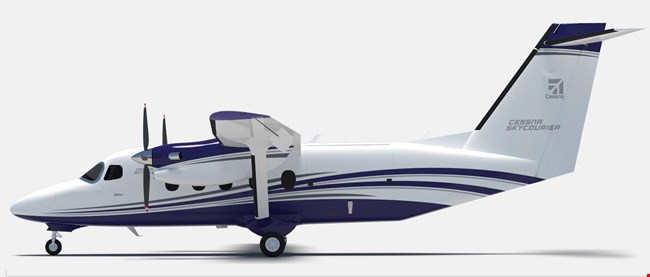First Cessna Skycourier Twin Utility Turboprop Takes Flight
Textron Aviation Inc., a Textron Inc. (NYSE:TXT) company, today announced the successful first flight of its new twin utility turboprop, the Cessna SkyCourier. The milestone flight is a significant step toward entry into service for the…

